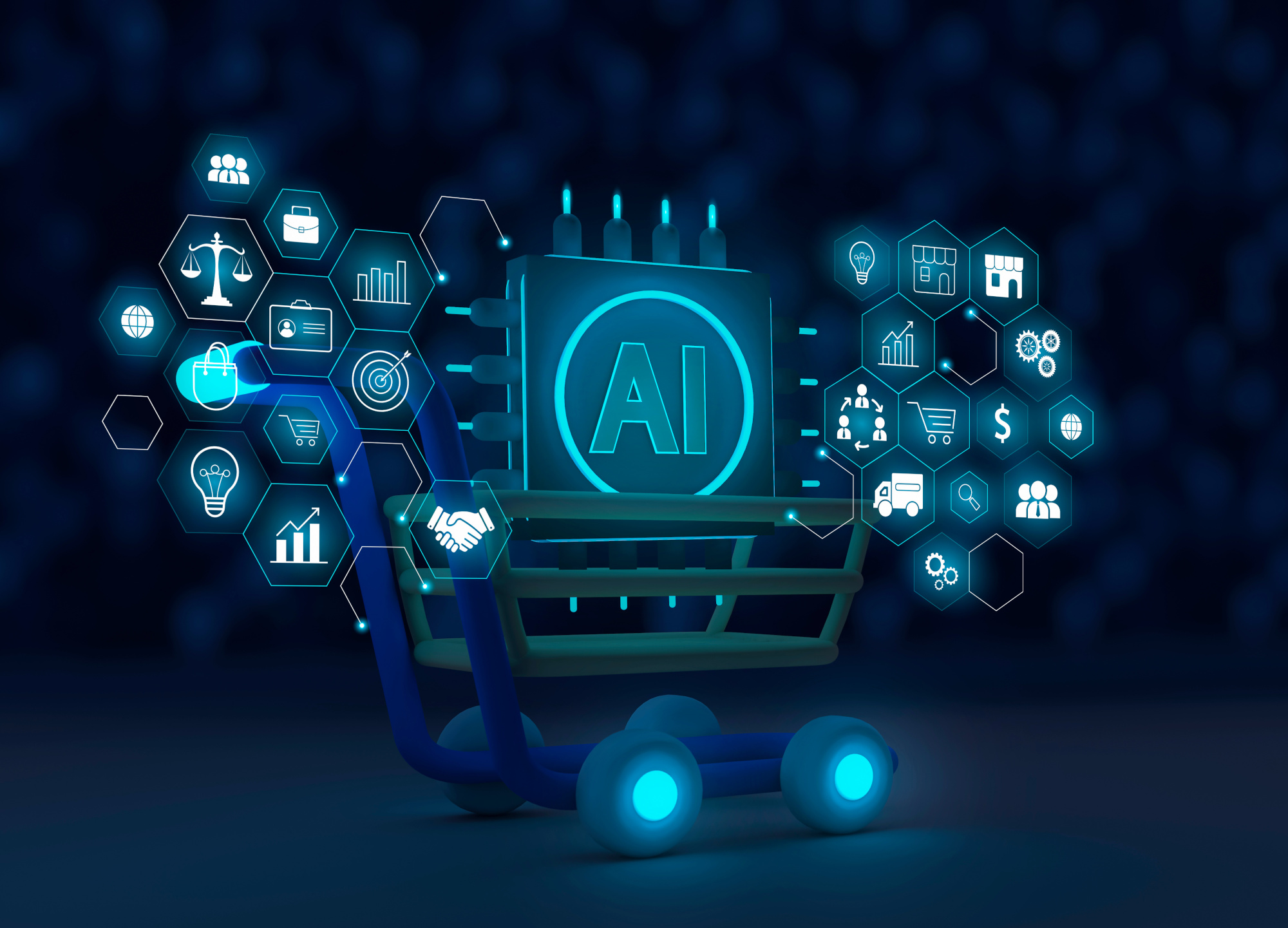The rapid, widespread development of artificial intelligence (AI) has left many professionals wondering if their jobs are at risk. Accountants, in particular, are asking: Will AI replace accountants? The answer is no. AI is not here to take your job but to enhance it. With the right mindset, AI can streamline routine tasks, allowing you to concentrate on higher-value work. This article aims to demonstrate that AI becomes a valuable collaborator when properly understood and utilized. It helps you gain insights, improve accuracy, and provide even greater value to clients.
What Does AI Mean in Accounting?
AI in accounting involves using algorithms and machine learning to analyze and interpret data. This technology automates tasks and provides real-time insights. In turn, it aids accountants in handling repetitive processes like data entry, invoice management, and compliance monitoring more efficiently.
Beyond just calculating numbers, AI can also predict trends, detect fraud, and offer valuable insights that enhance decision-making. Instead of seeing AI as a competitor, accountants can view it as a supportive tool that helps eliminate mundane tasks, enabling them to focus more on strategy and building client relationships.

AI in Accounting: An Overview
Accounting firms and professionals are adopting AI-driven tools to streamline their operations due to the accuracy and time-saving advantages they provide. AI is used to handle bookkeeping, generate financial reports, and assist in audits by cross-referencing large datasets faster than humans ever could.
Although AI opens myriad opportunities, will AI replace accountants? Not necessarily, and not entirely. It will certainly redefine roles within the profession, and it will also take over routine work. In response, accountants can become more advisory and strategic, adding greater value to their clients and organizations.
Benefits of Using AI in Accounting
One of the most significant advantages of AI is the ability to save time on repetitive tasks. For instance, automated data entry provides accuracy, granting employees more time to focus on tax planning or financial consulting.
AI also minimizes human error, which ensures compliance with regulations, eliminates costly mistakes, and flags anomalies. Moreover, AI-powered analytics tools provide real-time insights, helping accountants make better-informed decisions.
By embracing AI, accountants can focus on advisory roles, forecasting, and planning—areas where human expertise is essential. Ultimately, AI makes the accounting process smoother and gives accountants more time to offer high-value services.
How to Use AI in Accounting
Accountants can leverage AI in many practical ways, and HUB Analytics is an ideal starting point to improve any firm’s performance using artificial intelligence. For example, tools like HUB Analytics help automate the generation of financial reports and track performance indicators in real time.
Artificial intelligence tools can also support ledger reconciliations and tax preparation by auto-categorizing expenses and flagging discrepancies. Additionally, AI-powered chatbots can handle customer inquiries, freeing up accountants to work on more complex client needs.
Start small. Implement AI tools to handle specific tasks and expand as you become more comfortable with the technology. A resource like HUB Analytics can help accountants assess their needs and implement AI strategically, ensuring a smooth transition.
Integrating HUB Analytics’ AI-powered suite of tools with your existing systems and workflows is key to using it effectively. Working together, accounting firms can capitalize on AI accountant services, which can be highly appealing to many potential clients.
How Will AI Impact Accounting?
AI’s biggest impact will be shifting from traditional bookkeeping to more value-based services. But how will AI change accounting in other ways? Artificial intelligence will take over routine tasks like payroll processing and reconciliations, but human accountants will remain essential for interpreting financial data and providing advice. As automation increases, clients expect more personalized financial strategies, making advisory skills critical.
While some may worry about when will AI replace accountants, the reality is that AI will act as a co-pilot, enhancing rather than replacing human expertise. Accountants who leverage AI will be better equipped to handle complex financial analysis, forecasting, and compliance, staying ahead in a rapidly changing industry.

The Ethical Concerns with AI Replacing Accountants
Artificial intelligence’s use in accounting raises some ethical concerns, with data privacy being a primary issue. Clients expect their financial information to remain secure, and improper data handling could lead to breaches. There is also the risk of over-reliance on AI, where decisions are made based solely on algorithms without human oversight, leading to biased outcomes.
Financial executives worried about how will AI replace accountants must understand their presence is needed to stay involved in the decision-making process. Balancing AI-driven insights with human judgment is paramount. Moreover, maintaining transparency with clients about how the firm uses AI will also help build trust and ease concerns about automation.
Limitations of AI in Accounting
Rather than focusing on when will AI replace accountants, it’s best for professionals to understand that artificial intelligence will always have limitations, and a nuanced understanding of human accountants is required for comprehensive service delivery. In other words, AI systems can process data but cannot replace the relationship-driven aspect of accounting or adapt to unique, one-off scenarios.
Additionally, AI tools require regular updates and maintenance and accurate data input to function effectively. This means accountants must stay actively engaged with these technologies and oversee their performance to ensure accuracy and compliance. Ultimately, artificial intelligence may enhance the profession, but it is not a complete substitute for human expertise.
How HUB Analytics Can Help You Leverage AI
If you’re wondering if or will AI replace accountants, partner with HUB Analytics to ease your concerns. HUB Analytics helps you leverage the power of AI, helping you enhance and strengthen your firm’s position in the fast-growing realm of AI financial advisor services. With streamlined accounting workflows, real-time analytics, auto reporting, and customizable dashboards, HUB Analytics allows accountants to work smarter, not harder.
Whether you’re new to AI or looking to expand your use of technology, HUB Analytics offers seamless integration with existing systems and hands-on support to ensure you get the most out of your AI investments.
Frequently Asked Questions About AI and Accounting
Is AI a threat to accountants' jobs?
No. Artificial intelligence is not a threat but a tool that enhances efficiency. Accountants will remain essential for strategic planning and advisory services.
What is the future of AI in accounting?
While the question, “Will AI replace accountants?” is still troublesome, the future of AI accounting still relies on human collaboration. That said, AI’s ability to automate tasks and provide robust analytics will enable accountants to focus on higher-level tasks and client relationships.
How can small firms use AI in accounting?
Small firms can start with simple AI tools for bookkeeping, reporting, or customer service to gradually integrate AI into their workflows.
What can AI not do in accounting?
Artificial intelligence cannot replace the relationship-building, strategic thinking, and nuanced judgment accountants provide. It struggles with unique scenarios or complex decisions that require human insight, such as interpreting ambiguous regulations or advising clients on personalized financial strategies.
Will accounting ever be fully automated?
No. Accounting will never be fully automated. While automated systems can handle routine tasks, the need for human oversight, ethical judgment, and client interaction ensures that accountants will always play a critical role in the profession.
